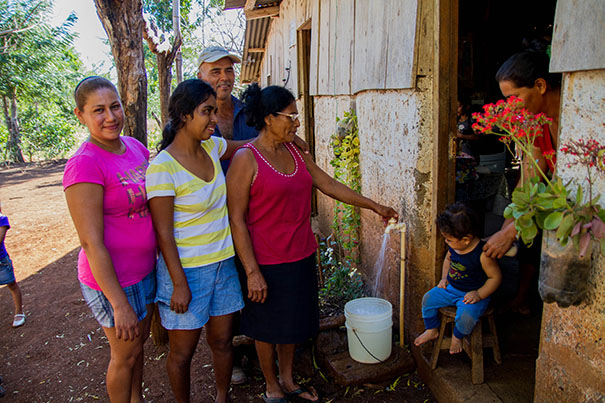Stories of Change

Marina, a member of the Nance water committee, demonstrates the new water system. Photo: Amber Blake / CWS
The World Bank classifies Nicaragua as the second poorest country in Latin America and the Caribbean.
Source: World Food Programme
Uniting and stepping up for clean water
In the increasingly dry community of Nance, Nicaragua, water is an issue. More specifically, water is a woman’s issue. The community is catapulting towards its sixth year of extreme drought, which has pushed local men to spend an increasing amount of time working in northern Costa Rica’s industrial agriculture sector. Left behind and without an easily accessible water source, Nance’s women trekked to the river multiple times each day to support the needs of their families. Some, like Noemi, even navigated the trek at full-term pregnancy, facing uphill climbs against dramatic river banks.
But in 2011, everything changed.
That year, under the guidance of CWS partner CIEETS, leading members of the community came together to form the community’s first water committee. Unsurprisingly, it was – and continues to be – comprised mostly of women. Says committee member Marina, “Before working with CIEETS, we were a little sleepy in our efforts. With the organization’s training and workshops, we began to realize that it was time to step up, and that we had to be the ones to step up.”
And step up they did. The water committee advocated for a water tank, which pumps clean water right into household taps in Nance as well as the neighboring communities of Cabezera and Santa Elena. The committee isn’t finished yet, either. In the realities of an unpredictable climate, they are prepared to annually represent the water needs of their neighbors as they arise. Committee member Ramona says, “We know this is a sustainable project, and we must now make sure everyone in our communities has access to water.”
